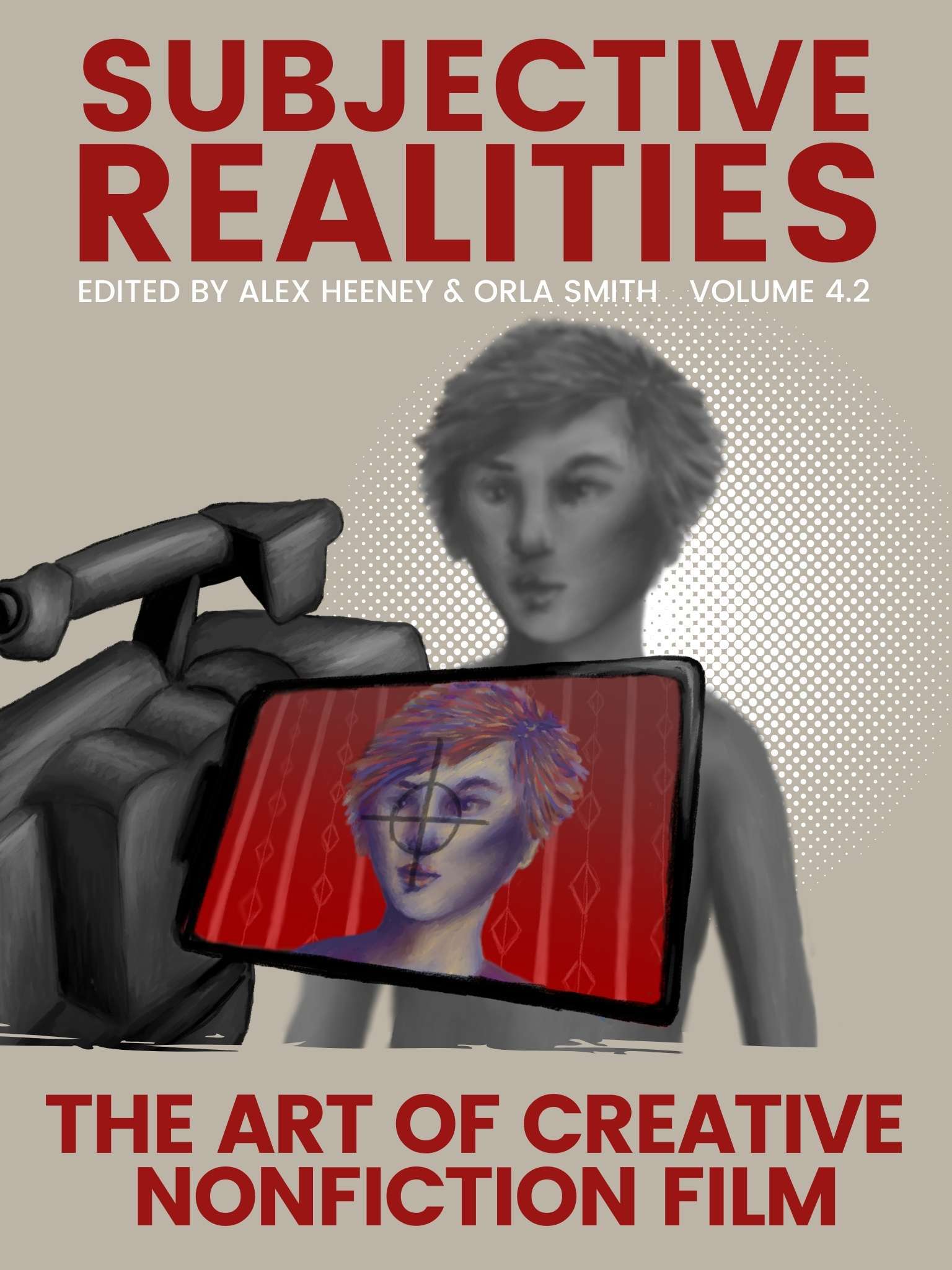From Flee to Procession, Seventh Row’s editors pick the best documentaries released in 2021 and the best undistributed docs.
Read all of our best of 2021 coverage.
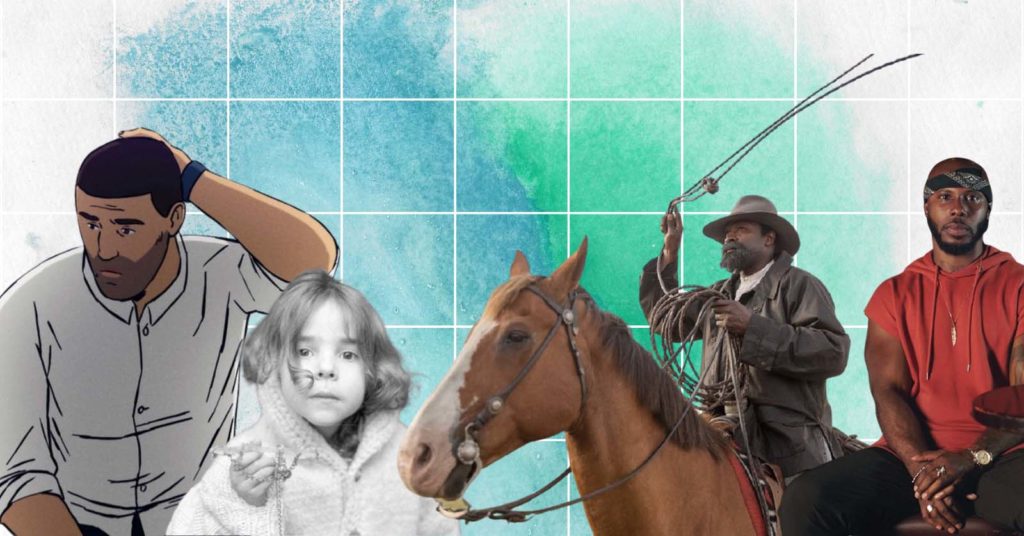
Discover one film you didn’t know you needed:
Not in the zeitgeist. Not pushed by streamers.
But still easy to find — and worth sitting with.
And a guide to help you do just that.
We spent a large part of 2021 writing an ebook called Subjective realities: The art of creative nonfiction. Seventh Row as a publication has always been interested in nonfiction cinema, but it wasn’t until Subjective realities that we realised just how much vital work is being done right now in the documentary landscape.
You’ll see on this list films like Still Processing, Procession, and North by Current, that question how filmmaking can be a tool to help people process grief and trauma. You’ll find films like No Ordinary Man and John Ware Reclaimed, which use documentary as a way to reclaim historical narratives about marginalised people. There’s films on this list that interrogate family bonds, colonialism, and immigration, all in innovative and deeply empathetic ways. They prove that there’s no greater tool than nonfiction to question how stories are told, and to tell new ones.
Get a copy of Subjective realities here.
Best documentaries released in 2021
10. One of Ours (Yasmine Mathurin)
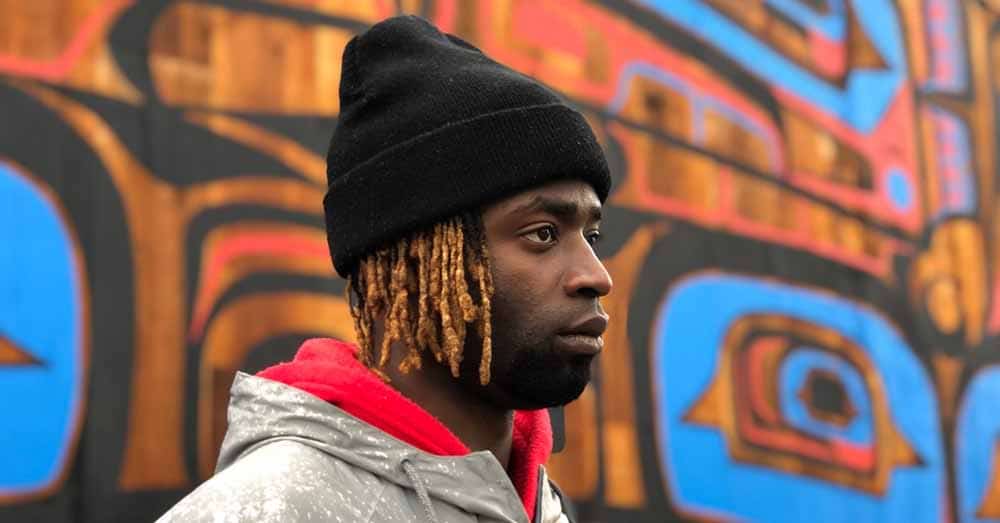
From our review: “The family at the centre of Yasmine Mathurin’s One of Ours is a maelstrom of complex dynamics governed by settler colonialism. Mathurin specifically follows Josiah Wilson, a Black twentysomething born in Haiti where he was adopted by a pair of Canadians — a white mother and an Indigenous father — who were living there at the time, and soon brought him home to Calgary in Canada. Having grown up as a member of the community of his father’s Heiltsuk Nation, Josiah is culturally and legally Indigenous. But as an adoptee, and a Black man, he looks like he’s out of place in this community. This also means he’s part of the African diaspora that was first torn from their homeland and brought to Haiti, hundreds of years ago, only to be once again torn away from his homeland by the Canadian family that adopted him.” Read the full review.
Streams on CBC Gem in Canada starting Jan 23, 2022. Still seeking distribution elsewhere. Subscribe to our newsletter for updates on when it will be available in the US and UK.
9. Still Processing (Sophy Romvari)
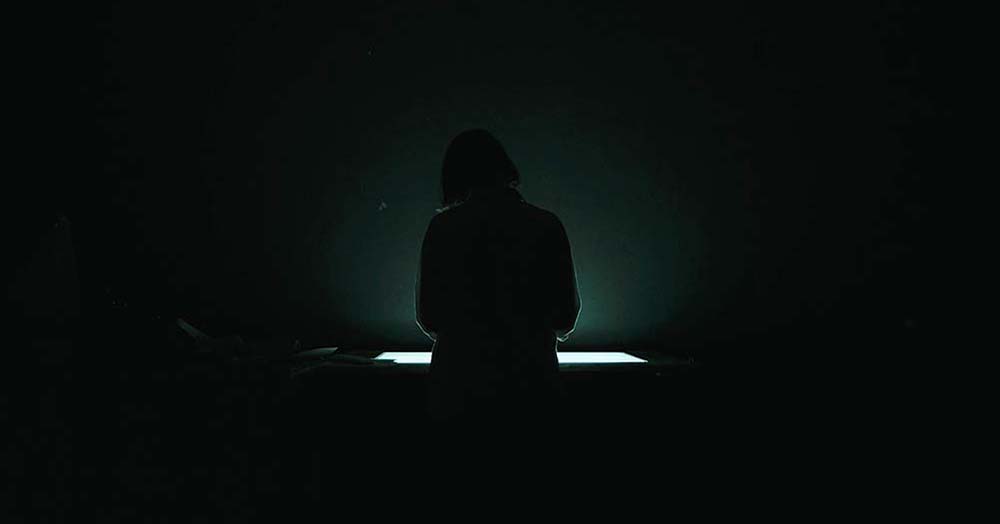
From the introduction to our interview with Sophy Romvari: “In Sophy Romvari’s personal documentary, Still Processing, she holds memories in her hands. After a long negotiation with her parents over her desire to make a film reflecting on her two older brothers’ deaths, her father presents her with a box of photos, videos, and film negatives. We watch as, for the first time, she takes them out. In black and white photographs taken by her father, we see children at rest and play. In one photo, a young Sophy is captured in closeup, looking directly into the camera. It’s a confrontational image, and given the film’s subject, it’s hard not to read melancholy in her expression. The photos capture an almost foreboding doom. They capture fleeting expressions that are transformed by events that follow.” Read the full interview.
Still Processing is available worldwide on Mubi.
8. The Rescue (E. Chai Vasarhelyi, Jimmy Chin)
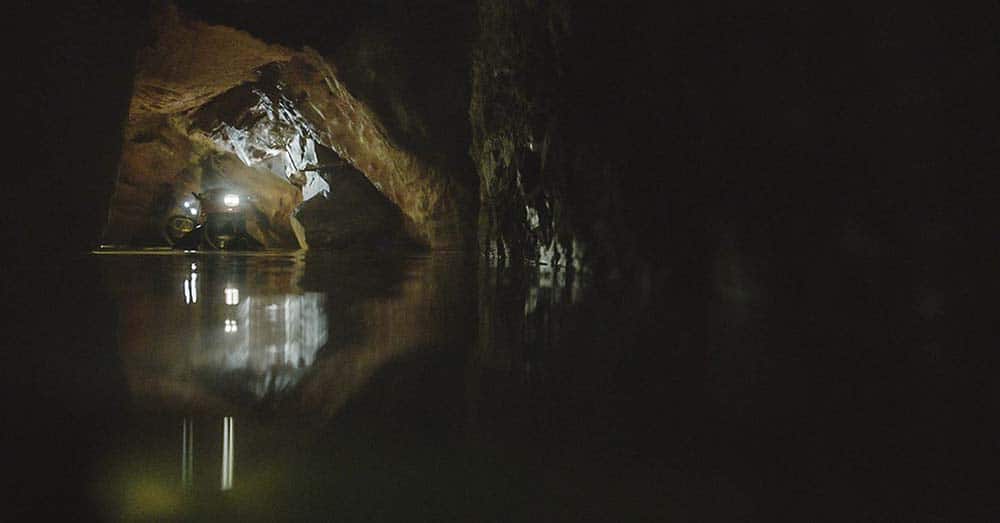
In 2018, a group of twelve young boys from the same soccer team got trapped in a flooded cave in Thailand, and a group of expert divers from around the world came together to save them. We pretty much all know the story, since it was all over the news that summer. Still, The Rescue directors E. Chai Vasarhelyi and Jimmy Chin’s documentary retelling of the story is as gripping as any thriller.
The Rescue doesn’t quite have the staying power of their Oscar-winning Free Solo, because it doesn’t have a central character as complex and fascinating as free soloist Alex Honnold. But The Rescue is every bit as expertly crafted and compelling as an ensemble piece. It manages to get us rooting for every person on screen, while presenting nail-biting action scenes pieced together from on-the-ground footage, recreations, retrospective interviews, and animated diagrams. Orla Smith
The Rescue is streaming on Disney Plus worldwide.
7. Procession (Robert Greene)
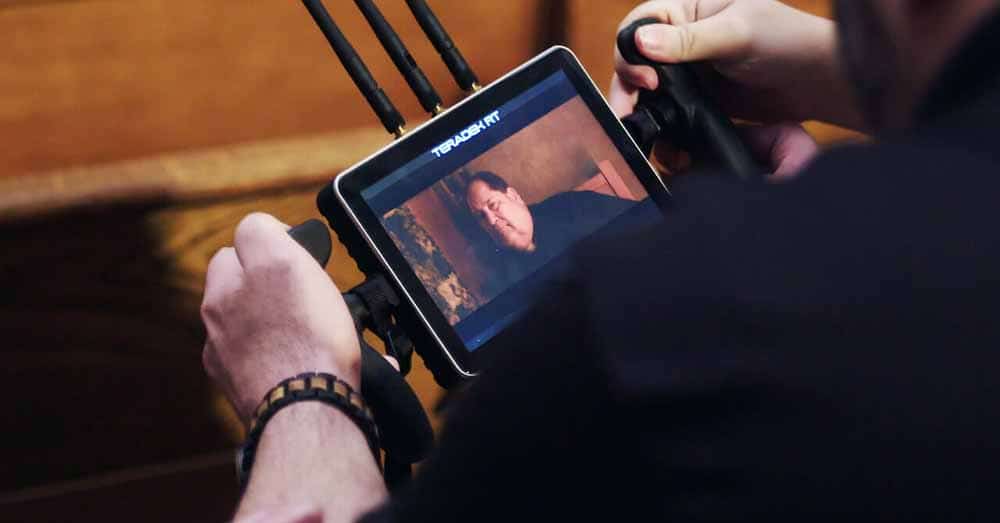
From the introduction to our interview with Robert Greene: “‘I don’t use the word healing,’ Greene clarified when I spoke to him about Procession. ‘Healing is possible, certainly, but especially with the guys that we worked with in Procession, they’re not looking for healing. They’re looking for meaning, and they’re looking for help.’ In the film, Greene works collaboratively with six survivors of childhood sexual assault, and enlists a drama therapist, Monica Phinney, to help ensure the process is helpful, rather than retraumatising. Phinney describes her work as ‘the intentional use of roleplay to achieve a therapeutic goal.’ To that end, each man writes a short script centred around a real or imagined scene from their childhood, and sets about committing it to film. Sometimes, that even means returning to the precise location of their trauma. It’s an emotional experience, but one that helps them take steps to processing the pain in their pasts.
Greene describes Procession, as ‘the culmination of [his] work;’ I have to agree with his sentiment. Certainly, watching all of his films chronologically, leading up to Procession, was a striking experience. Collectively, they paint a portrait of Greene’s progression as an artist and as a person over the past decade, as he’s grown to realise the power of filmmaking as a therapeutic process, and thus gained a clearer understanding of why he wants to make films in the first place.” Read the full interview.
Procession is streaming on Netflix worldwide.
6. North by Current (Angelo Madsen Minax)
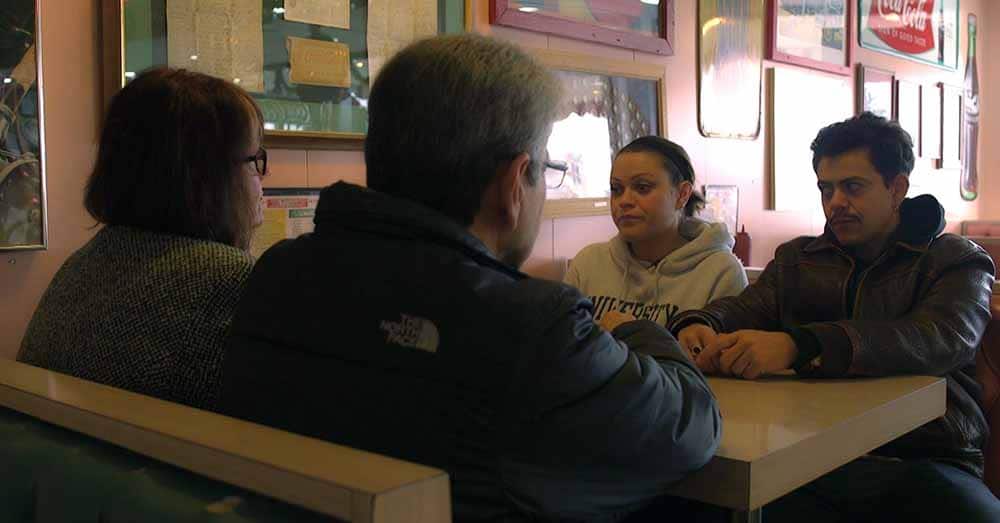
From the introduction to our interview with Angelo Madsen Minax: “For filmmaker Angelo Madsen Minax, returning home to rural Michigan meant confronting his demons and helping to rebuild a fractured family unit. For years, he kept his distance from home, moving to the big city where he could embrace and explore his transgender identity away from his Mormon upbringing. About ten years ago, the death of his young niece, Kalla, changed everything. Minax returned home to support his grieving sister and parents. He was also there to fight against his brother-in-law’s prison sentence: his brother-in-law was accused of killing Kalla, a sentence which was later revoked when it was exposed that the police had covered up evidence. From this trying time, the project of making North by Current was born.
North by Current is a lyrical documentary, shot periodically between 2015 and 2021, capturing Minax and his family’s journey through grieving. Minax describes it as an ‘essay film’: it’s heavy on subjective voiceover, some of which is voiced by Minax himself, and some by an unidentified child narrator. It’s never explained who this child is: Are they an imagined version of Kalla? Minax or his sister as children? Or some other, omniscient being, here to provide a spiritual commentary on the situation? This ambiguous voiceover is part and parcel with the film’s singular perspective, more concerned with capturing a state of mind or a feeling than telling us everything about Minax and his family.” Read the full interview.
North by Current is available on VOD in the US. Subscribe to our newsletter for updates on where it’s streaming.
5. Film about a Father Who (Lynne Sachs)
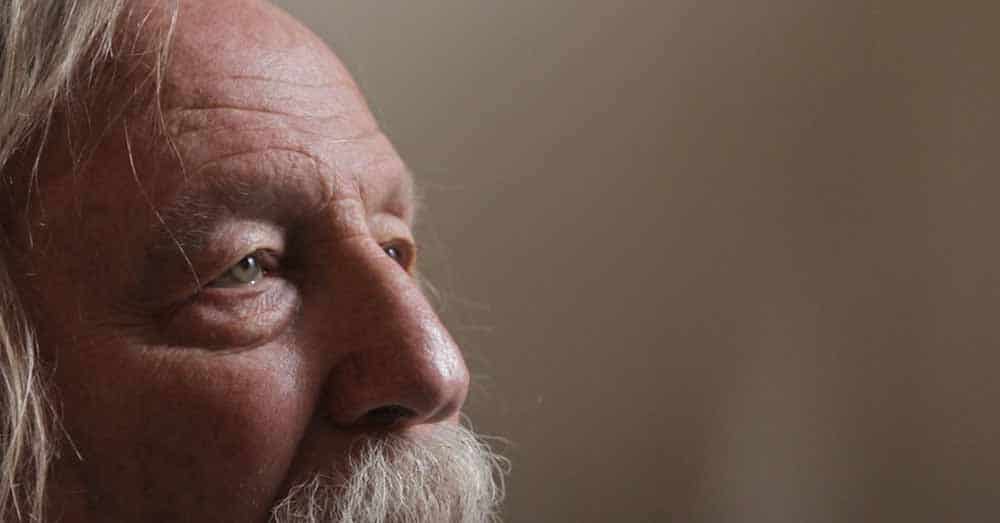
From the introduction to our profile of Lynne Sachs: “In the 1980s, documentary filmmaker Lynne Sachs started filming her father, Ira Sachs, a gregarious, womanising businessman. Now, three decades later, she’s finally finished making Film About a Father Who, a sprawling chronicle of her father’s life, and the children, wives, and girlfriends he left in his wake. That includes Lynne, her sister Dana, and her brother Ira Jr. (also a filmmaker). It also includes the six other children that their father had with various different women.
Film About a Father Who feels like a culmination of a career of family-focused work; it’s ambitious, attempting to take in the whole scope of Ira Sachs Sr.’s life. In non-chronological fragments, through footage spanning from the present day back to 1965, Sachs seeks to understand the complicated, unknowable figure of her father. In the end, the film doesn’t aim to be a comprehensive character study of Ira Sachs Sr.; Sachs realises that she has only so much access to her father’s mind, especially now that his declining health means that he can’t speak that much. Instead, she works with what she does have: access to herself, and to an extent, her siblings, to examine the bruises that a father leaves on his children, and how they attempt to heal.” Read the full profile.
Film About a Father Who is streaming on Criterion Channel in Canada and the US. Subscribe to our newsletter for updates on where it’s streaming.
4. John Ware Reclaimed (Cheryl Foggo)
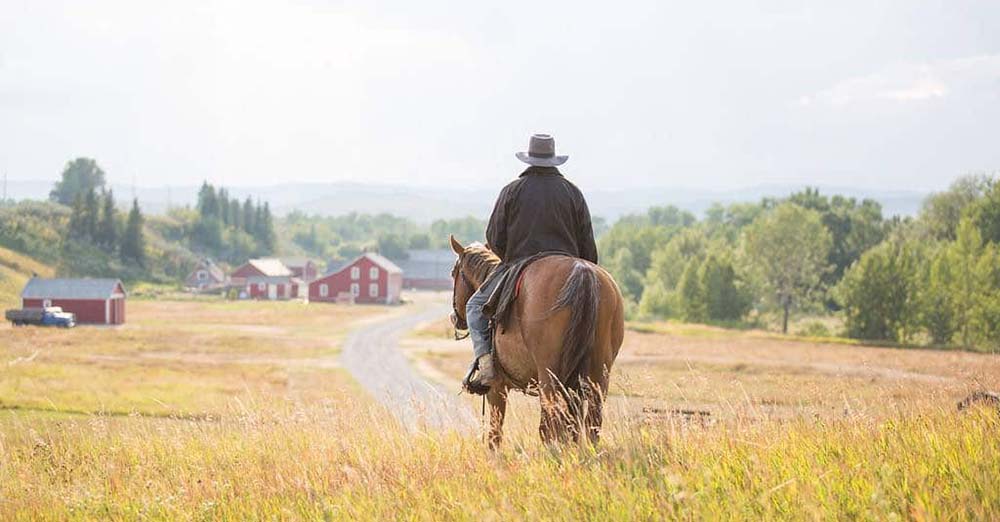
From the introduction to our interview with Cheryl Foggo: “It’s one of Canada’s best kept secrets that there’s a rich history of the Black diaspora in the Alberta prairies dating back over a century ago. What little is known about that history has been condensed in the popular consciousness to the story of cowboy John Ware, an enslaved American who moved to Canada and became a successful rancher. But even the historical accounts of him are limited to a single book, John Ware’s Cow Country by Grant MacEwan, published in 1960, written by a white man, and full of racist stereotypes about Black masculinity. Cheryl Foggo’s moving, enlightening, and appropriately infuriating new documentary, John Ware Reclaimed, attempts to reclaim not just John Ware’s story from the biased history books but the history of Black Canadians in the prairies.
Foggo replaces Grant MacEwan’s mythology of John Ware with a newer, more modern, and more nuanced take, which highlights both Ware’s humanity and the very real struggles he faced. She casts real life cowboy Fred Whitfield as John Ware, and together, they create iconic images of a cowboy in action in the gorgeous Alberta landscape. Through animation, Foggo grants us access to the love story between John Ware and his wife Mildred. The animated images depict the two always hanging onto each other, almost curled together, as if sheltering from the storm of the wider world. Through original country songs written by Foggo’s daughter, Miranda Martini, as well as songs by Corb Lund, Foggo further sets the tone for John Ware’s story.” Read the full interview.
John Ware Reclaimed is streaming free in Canada on the NFB website, and is available on DVD worldwide. Subscribe to our newsletter for updates on where it’s streaming.
3. No Ordinary Man (Aisling Chin-Yee, Chase Joynt)
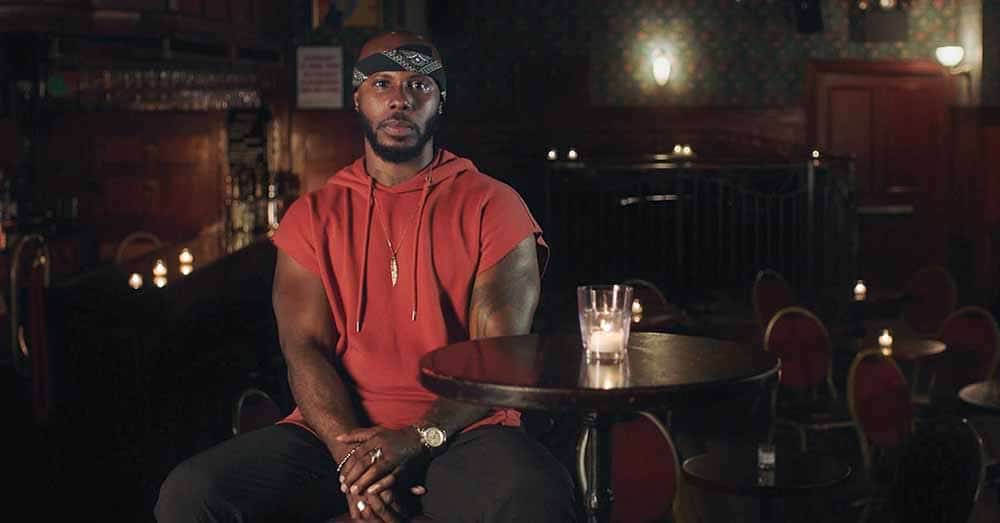
From the introduction to our interview with Aisling Chin-Yee and Chase Joynt: “The story No Ordinary Man tells is one of lost transgender history that’s finally being reclaimed. The film’s subject is Billy Tipton, an influential jazz musician who worked between the 1930s and 1970s. It wasn’t until 1989, when Tipton died in the arms of his son, Billy Jr., that Tipton’s family and the public discovered that he was assigned female at birth. After his death, Tipton’s story was twisted: Tipton was unequivocally a trans man, but the cis-dominated media presented him as a woman who dressed as a man in order to get a foot in the door in the music industry. Even the most cited text about Tipton’s life, Suits Me: The Double Life of Billy Tipton by Dianne Middlebrook, framed his story around this harmful narrative.
In Aisling Chin-Yee and Chase Joynt’s hands, No Ordinary Man is no ordinary biographical documentary. They go way beyond the standard archival footage and talking head interview approach to tell Tipton’s story. Joynt explained that “understanding that there was no moving image footage of Tipton was both a restriction and an opportunity for us to immediately start thinking creatively beyond the bounds of reenactment and other ways that biopics tend to be created.” The film features photos and audio recordings of Tipton, as well as his music, and his life story is told through the words of talking-head experts, most of whom are trans. But another huge part of the film are “auditions” where the filmmakers invite a whole host of diverse transmasculine actors to act out and then dissect scripted scenes from Tipton’s life.” Read the full interview.
No Ordinary Man is streaming on Kanopy and available on DVD in Canada and the US. It is still seeking distribution elsewhere. Subscribe to our newsletter for updates on its availability.
2. Flee (Jonas Poher Rasmussen)
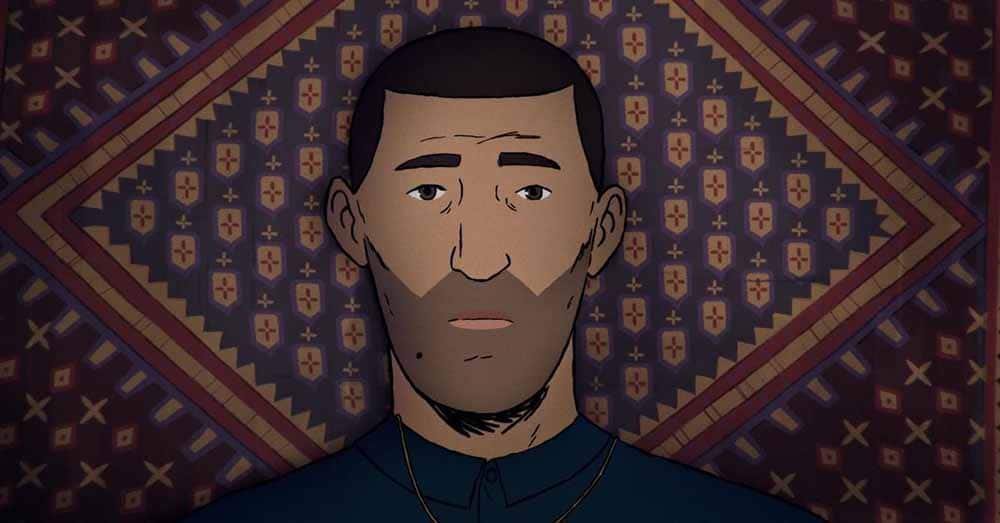
From the introduction to our interview with Jonas Poher Rasmussen: “In the final shot of Jonas Poher Rasmussen’s beautiful, heartrending animated documentary, Flee, the animation fades into the live footage on which it’s based, and they’re remarkably similar. It’s a clever reminder that the story you’ve just been swept up in is in fact real, and a hint at just how faithful to reality the animation style has been throughout the film. Having seen some of the reference images on which the rest of the film’s animation is based, it’s incredible how true to life the film is.
Flee opens with silhouettes in gray and blue, an image of legs running, and the sound of heavy breathing. In voiceover, Rasmussen asks his dear friend, Amin, “What does the word ‘home’ mean to you?” It’s a strong distillation of the story the film will explore, of a man who has been constantly on the run, unable to find somewhere comfortable to call home, not just physically but emotionally, because he’s never told his story of fleeing as a refugee in full to the people who are closest to him. It’s also an introduction to the more abstract animation style that will characterise the moments of trauma that Amin recalls, more by evoking feelings than by faithfully depicting the facts of events.” Read the full interview.
Flee has distribution in Canada, the US, and the UK, but is still only available in cinemas. Subscribe to our newsletter for updates on when it will be available digitally.
1. Kímmapiiyipitssini: The Meaning of Empathy (Elle-Máijá Tailfeathers)
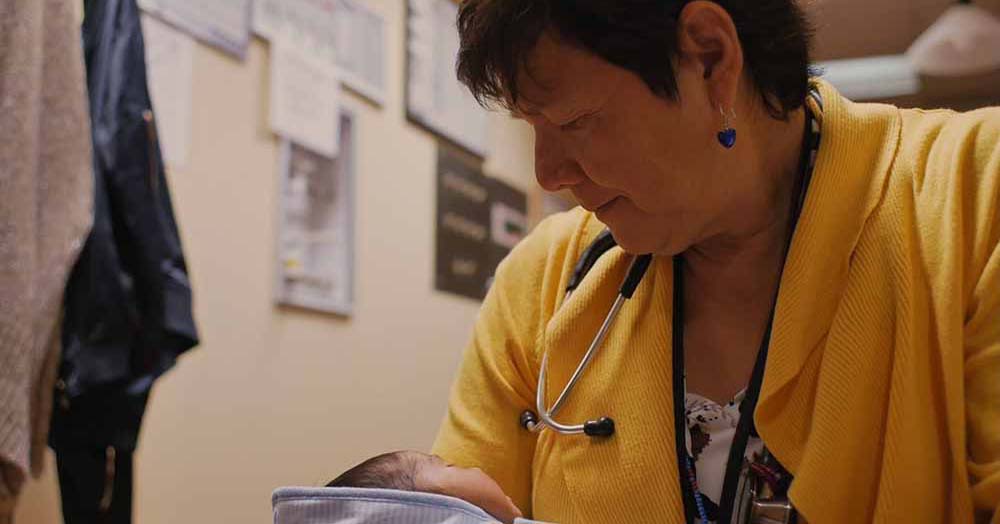
From the introduction to our interview with Elle-Máijá Tailfeathers: “Kímmapiiyipitssini: The Meaning of Empathy opens on a herd of buffalo grazing against the gorgeous landscape of the Kainai First Nation in Alberta. As we watch a mother and child buffalo nuzzle against each other, the soundtrack mingles a gentle score with the sounds of a woman speaking to a newborn baby. Elle-Máijá Tailfeathers’s Kímmapiiyipitssini is a documentary about the opioid crisis ravaging Tailfeathers’s own community of the Kainai First Nation. It’s fitting that a film that approaches that topic with such empathy and humanism doesn’t begin with sensationalised imagery of harm, but images and sounds of parental love and caring.
In Tailfeathers’s own words, “Kímmapiiyipitssini is this Blackfoot teaching that we give empathy and kindness as a means for survival.” In keeping with this teaching, her film advocates for the controversial practice of “harm reduction” as a more humane and effective way to treat those who live with substance use disorder. As Tailfeathers explains in voiceover, the most common practice of treating addiction is preaching abstinence, perpetuated by guidance like twelve step programs. But that simply isn’t realistic for many people addicted to strong and deadly substances like fentanyl, which entered Tailfeathers’s community seven years ago and has since caused countless deaths by overdose. Harm reduction advocates that patients be provided an alternative drug that’s safer and easier to regulate, so that they can continue their daily lives without painful withdrawal symptoms.” Read the full interview.
Kímmapiiyipitssini: The Meaning of Empathy will be available to stream free on the NFB website in Canada later this year. Subscribe to our newsletter for updates on its availability.
Best documentaries that world premiered in 2021
1970 (Tomasz Wolski)
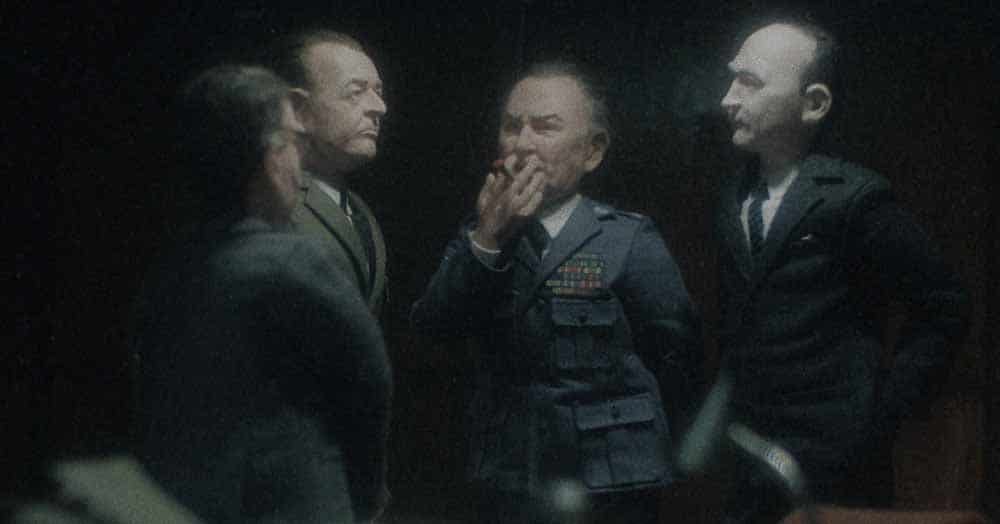
From our review: “Tomasz Wolski’s fascinating documentary 1970 is probably the most formally inventive film I saw at Visions du Réel, rightly taking home the prize for the International Feature Competition. When Wolski stumbled upon real-life recordings of telephone calls between Polish dignitaries discussing their strategy for dealing with the 1970 workers’ rebellions, Wolski knew he had to build a film around them.
To help us follow the conversations, he created puppets of each of the characters on the phone call, and used stop-motion animation to take us inside their homes and board rooms.
Working with a limited budget meant the puppets could only move so much, so Wolski moved the camera, as well as creating mood lighting and period-accurate settings, to make us feel like we’re really there with them. You forget you’re watching animation, and feel like you’re really watching these events unfold.” Read the full review.
1970 is still seeking distribution outside of Poland. Subscribe to our newsletter for updates on its availability.
Archipelago (Félix Dufour-Laperrière)
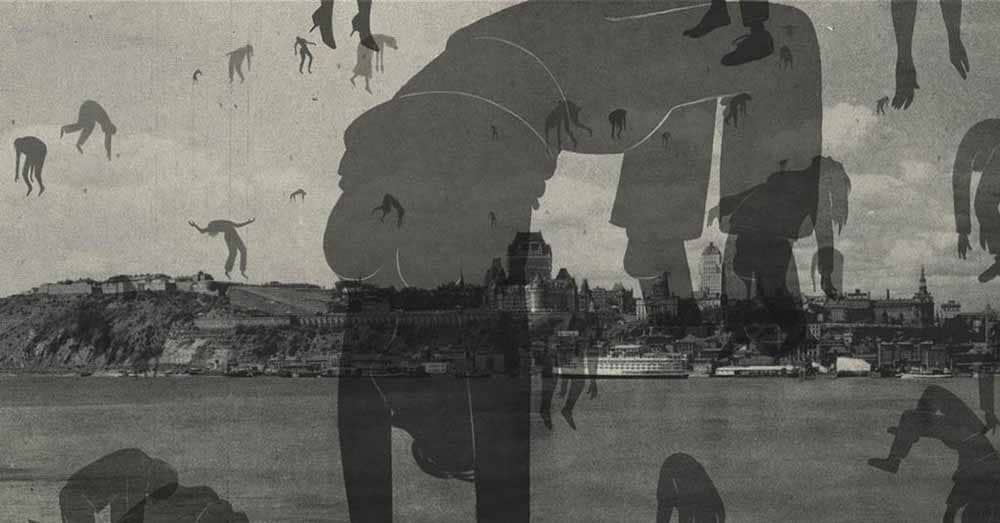
From our review: “Québécois animator Félix Dufour-Laperrière makes his first foray into documentary filmmaking with Archipelago, which mixes archival footage with animation to tell the story of the land along the St. Lawrence River. Working from a documentary about the St. Lawrence from the 1940s, which itself is an inaccurate depiction of the region at the time, Dufour-Laperrière annotates, paints over, and plays with the footage, and in turn, our sense of the history of the land.” Read the full review.
Archipelago will be released in Quebec in 2022, and thus will eventually be on VOD in Canada. It is still seeking distribution internationally. Subscribe to our newsletter for updates on its availability.
Coextinction (Elena Jean, Gloria Pancrazi)
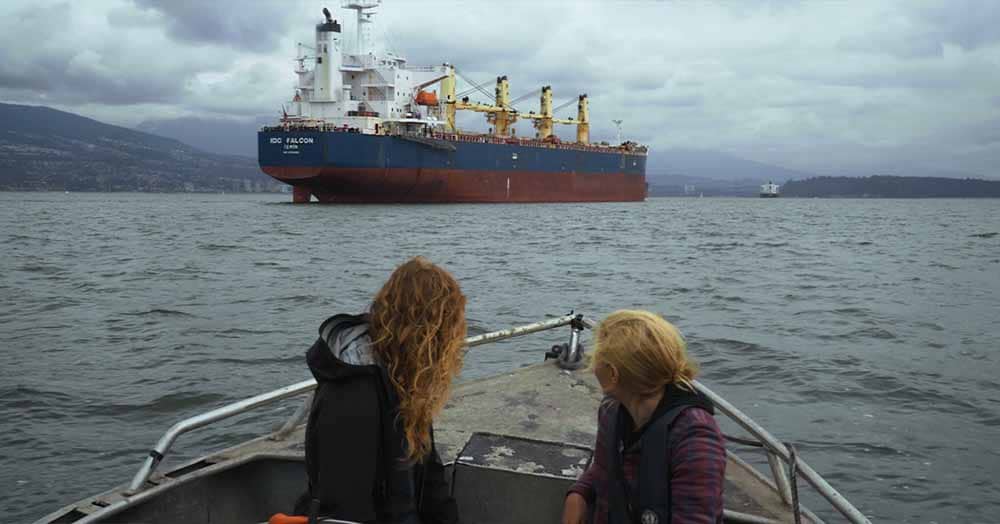
From our review: “Settler filmmakers Gloria Pancrazi and Elena Jean began the making of Coextinction as a fight to protect the Southern Resident killer whales, of which there are less than one hundred left. In the process of trying to understand what threatens the killer whales, they discover the dangers of the excessive noise produced by the shipping lanes, which interfere with the killer whales’ ability to find their prey. But soon, they realise the problem is not just with being able to find the prey, but the existence of the prey at all.” Read the full review.
Coextinction is still seeking distribution. Subscribe to our newsletter for updates on its availability.
Daughter of a Lost Bird (Brooke Swaney)
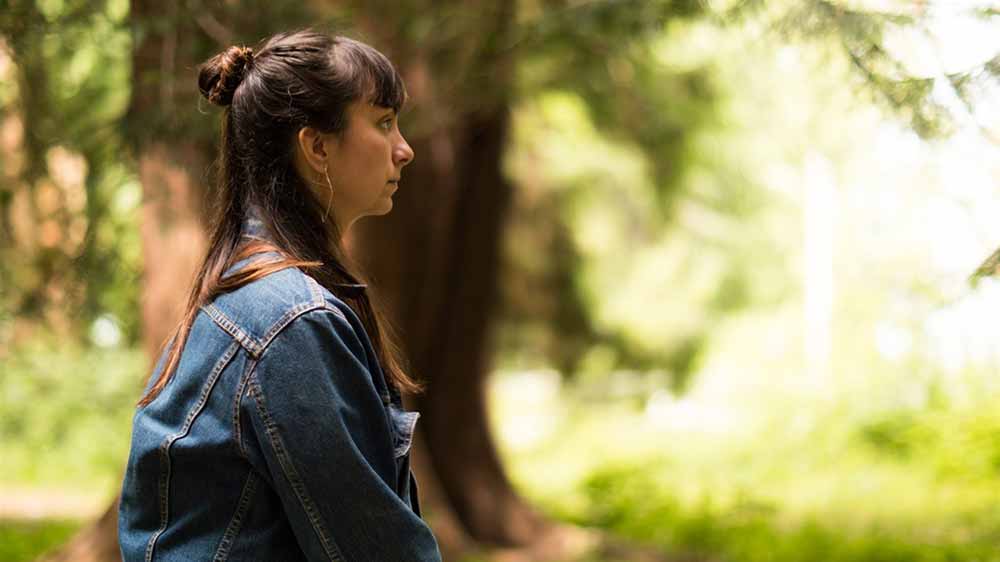
From our review: “Daughter of a Lost Bird opens on Kendra, a young woman in her thirties, sitting on her floor as she nervously makes an important phone call. She leaves a message: “Hi April, this is Kendra Potter, your birth daughter.” Shortly after, April calls back, and mother and daughter hear each other’s voices for the first time.
Documentarian Brooke Swaney tracks Kendra’s journey over several years as Kendra reconnects with her long-lost family and her indigeneity. Swaney is careful to contextualise Kendra’s identity crisis within the traumatic history of adoption in Indigenous communities in the US. As a result of the Indian Child Welfare Act, both Kendra and her mother were adopted out of their birth families, separating them from their Indigenous communities by two generations.” Read the full review.
Daughter of a Lost Bird is still seeking distribution in the US and internationally. Subscribe to our newsletter for updates on its availability.
Explant (Jeremy Simmons)

From our review: “Watching Jeremy Simmons’s Explant feels more like sitting through a spine-curling body horror film than a facts-based documentary. It’s one of several recent documentaries that explores how medical science repeatedly disregards women’s health and bodies, from The Dilemma of Desire to Unrest. It’s a subject that both fascinates and horrifies me. Explant succeeded in doing both.
Explant is a deep dive into the breast implant industry, particularly in the US, and how it is harming women. Our “way in” to this topic is Michelle Visage, who is most well known as a judge on RuPaul’s Drag Race (Explant was produced by World of Wonder, the company behind Drag Race). Before we learn about the bigger picture, we’re introduced to Visage’s personal struggle with “Breast Implant Illness”. Visage’s implants are no secret: early in the film, her teenage daughter sarcastically remarks, “Your entire brand is built off your boobs.” Visage regularly playfully comments on them on Drag Race, and even occasionally bares them for all to see.” Read the full review.
Explant is still seeking distribution. Subscribe to our newsletter for updates on its availability.
Miguel’s War (Eliane Raheb)
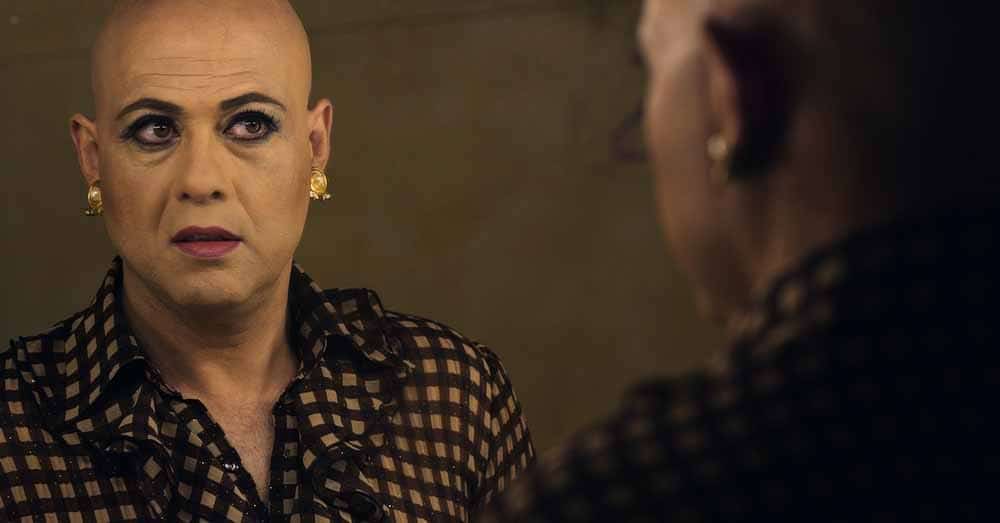
From the introduction to our interview with Eliane Raheb: “I realised that Miguel’s War was going to be a boundary-pushing documentary as soon as the film’s subject, Miguel Alonso, responded to a probing question from director Eliane Raheb by laughing and exclaiming, “What a horrible bitch!” Raheb tells the story of Miguel, from his childhood in Lebanon, to his participation in the Lebanese Civil War, to his life in Spain, where he lives today, as an out gay man. But she’s just as interested in exhibiting the difficult process of getting Miguel to open up as she is recounting the facts of his life. This is a film about trauma — how it distorts and represses memory, and makes it hard to be honest with yourself and other people. For Raheb, it was just as important to include takes of Miguel (jokingly) calling her a bitch, declining to answer questions, and struggling to recall the truth than it was to include his eventual honest answers.” Read the full interview.
Miguel’s War is still seeking international distribution. Subscribe to our newsletter for updates on its availability.
Mr. Bachmann and His Class (Maria Speth)
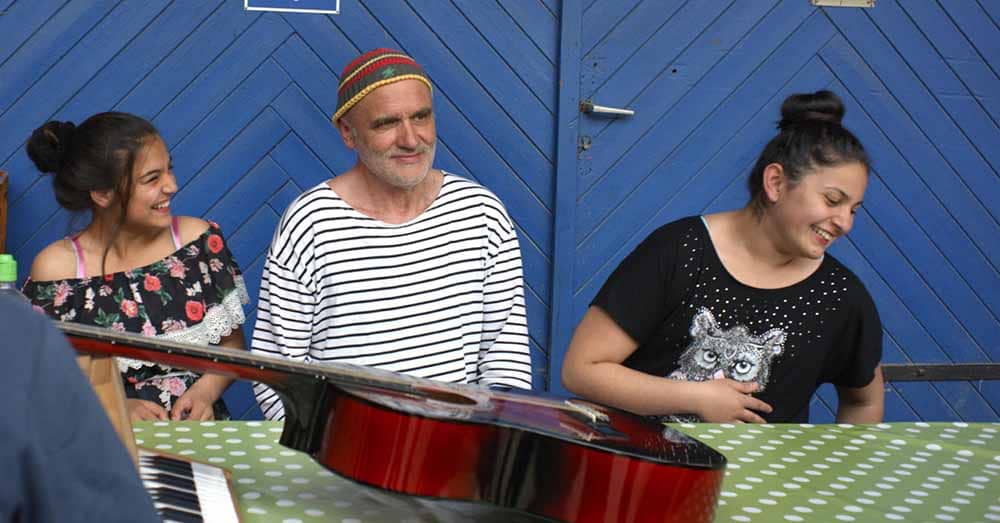
The three-and-a-half-hour length of Maria Speth’s documentary, Mr. Bachmann and His Class, might make you think of the work of Frederick Wiseman. But Mr. Bachmann is less interested in institutions than it is in character growth. Over the course of one school year, Speth follows Dieter Bachmann, a soon-to-be-retired school teacher, and his last class of pupils.
In the small and rural city of Stadtallendorf, Germany, many of the pupils are immigrants or children of immigrants, and for some, German isn’t their first language. In an education system that might otherwise cast these children aside, Bachmann carves a space for them to grow. His unconventional teaching methods — allowing naps during school time, holding musical jamming sessions with the pupils — nurture the kids. He encourages open dialogue in his classroom as a way to teach his kids empathy and to persuade the higher achieving amongst them to help those who are struggling. It’s a film that, I’m sure, will encourage many people to become teachers, because it shows how much of a difference one teacher can make if they’re willing to fight for their students. OS
Mr. Bachmann and His Class will be released in the UK in 2022. It is still seeking distribution in North America and internationally. Subscribe to our newsletter for updates on its availability.
Searchers (Pacho Velez)
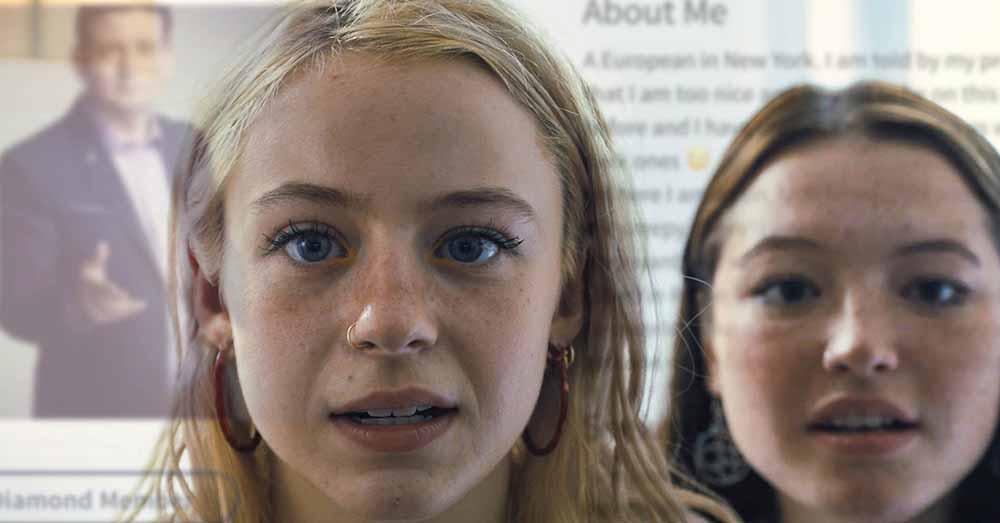
From the introduction to our interview with Pacho Velez: “Searchers is a documentary about online dating in New York, made during COVID, although the pandemic is barely brought up, and only noticeable because of shots of New Yorkers on the street wearing masks. “The stuff about COVID was the least interesting,” director Pacho Velez told me. “At the end of the day, looking for love and looking for connections has been going on since the dawn of time. It’s going to continue. The obstacles are different, but the search is pretty much the same.” Because Velez avoids explicit discussions of the virus, Searchers is less a cheap attempt to make a ‘relevant’ film, and more a sweet, wholesome, and empathetic examination of finding love.
Through short interviews with various New Yorkers, we get to intimately observe the way people interact with dating apps, whether they’re judging other people, or curating their own profiles. Velez shoots each interview in the same way: in a closeup and with the subject looking directly into the lens (over which Velez fitted a teleprompter with the app screen on it). The app they’re looking at is superimposed, out of focus, over the screen we’re watching. We have some idea of what the subject is looking at, but our focus is on their face. Velez presents each interview in a single, unedited take, so we get to watch them thinking, and observe how long they take to consider before deciding to swipe left or right.” Read the full interview.
Searchers is still seeking distribution. Subscribe to our newsletter for updates on its availability.
Wochiigi lo: End of the Peace (Heather Hatch)
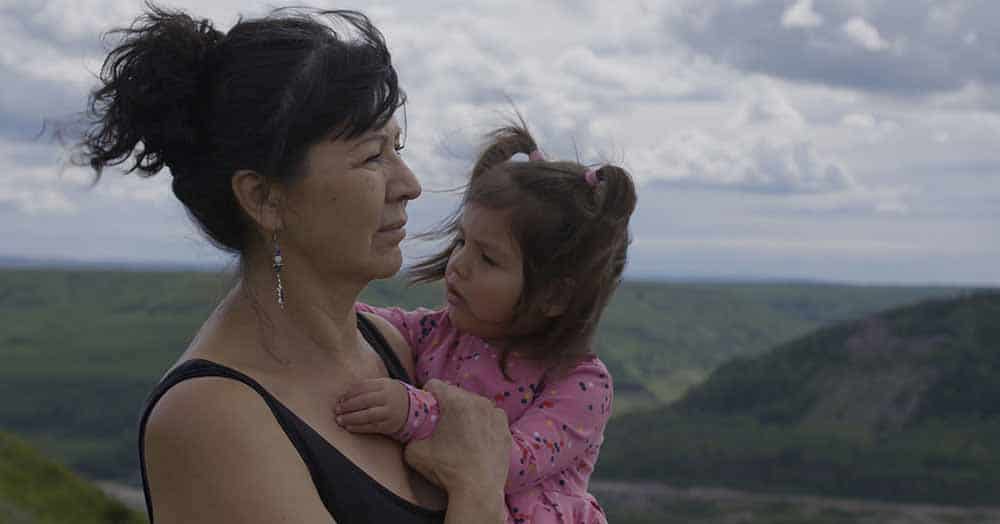
Haida filmmaker Heather Hatch’s Wochiigii lo: End of the Peace, which premiered at TIFF, though I caught it at Sudbury’s excellent CineFest, is a deep dive into the construction of the Site C hydro dam on the Peace River in British Columbia. From the beginnings of its development, it was clear that the dam would provide energy nobody needed, cost more money than it would ever earn back, and in the process, create major environmental destruction, especially through lands populated largely by Indigenous Peoples.
Hatch’s documentary charts the years-long fight, in courthouses and through protests on the ground, to stop the development of the dam. Hatch regularly cuts between the developments in the building project and Indigenous People’s ongoing fight to stop it, showing that destruction keeps happening even as the dam’s future is being debated. Hatch also connects this megaproject with a history of similar projects, like the Bennett Dam, which had major detrimental impacts on both the environment and Indigenous peoples. AH
Wochiigii lo is still seeking distribution. Subscribe to our newsletter for updates on its availability.
Young Plato (Neasa Ní Chianáin)
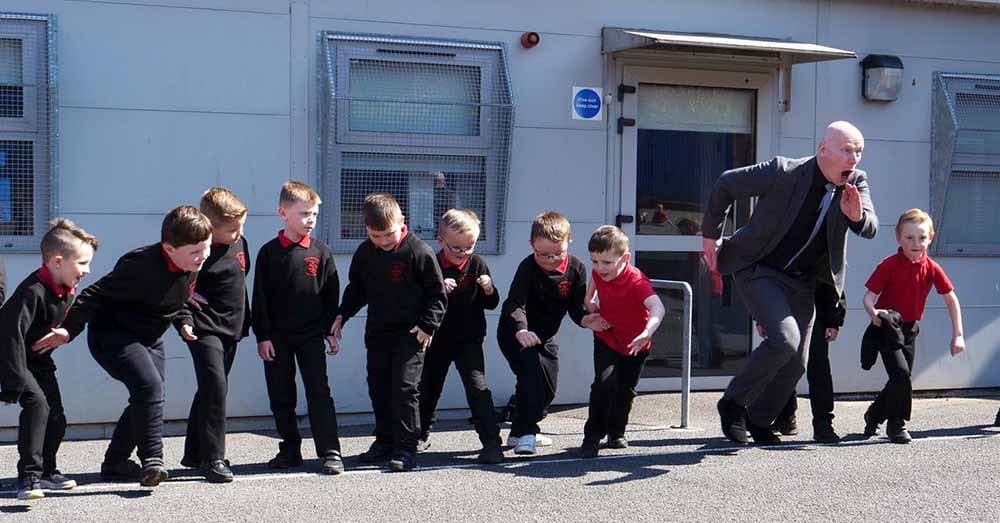
From our review: “With Young Plato, Neasa Ní Chianáin continues her cinematic exploration — which began with In Loco Parentis (School Life) — of exceptional Irish teachers and the children whose lives they change. In School Life, which she co-directed with David Rane (who serves as a producer, though not a director, on Young Plato), Ní Chianáin followed two teachers at an Irish boarding school, married couple Amanda Leyden and John Leyden, to show how these teachers took care of the children’s emotional and intellectual needs. In Young Plato, this time co-directed with Declan McGrath, Ní Chianáín (also serving as cinematographer) trains her camera on teacher Kevin McArevey, who teaches philosophy as a way to help boys process their emotions and find better ways of dealing with their anger. Both films keenly depict how great teachers who value critical thinking can be an important route to social change — but they can’t always entirely counteract the influence of wider society.” Read the full review.
Young Plato is still seeking distribution. Subscribe to our newsletter for updates on its availability.
Procession, Flee, No Ordinary Man, John Ware Reclaimed, Archipelago, 1970, Miguel’s War, Searchers, and Still Processing all feature in our ebook Subjective realities: The art of creative nonfiction film. Get a copy here.
